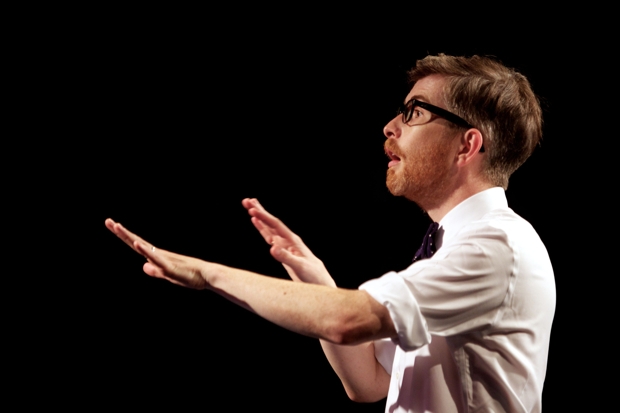They’re now televising proceedings from the Court of Appeal. Great. As if I didn’t have enough to do already, keeping tabs on Strictly Come Dancing and EastEnders, I now have to monitor what’s happening within the hallowed judicial temples of the land. The broadcasting of court cases has been much debated, with people fussing about whether it will influence the meting out of Justice, and the implications for Law and Order once these are exercised in front of the cameras, and other high-minded issues.
My own worry is about my job scope. Everything is televised these days, which means everything can be reviewed. There are the main channels such as the BBC and ITV, plus satellite and cable channels, Netflix and LoveFilm, those Kevin Bacon ads, CCTV (China’s state broadcaster), CCTV (surveillance cameras, of which Britain apparently has more than China), YouTube, and goodness knows what else. Thankfully, nothing major or untoward happened during the appeal cases that were broadcast last week, with Episode One on Thursday zooming in on the case of a forger of pound coins appealing against his seven-year sentence. His bid failed. A few grainy photos also emerged of David Cameron’s brother, Alexander Cameron QC, practising his profession. The appeal cases are being televised on Sky News, ITN, BBC and the Press Association, but only one person is allowed into court with a camera, which means everything is filmed by a PA video-journalist, from a workstation that is said to look like a tea trolley.
Another thing being televised, of course, is theatre. The technology to broadcast plays, musicals and operas must have been around since live telecasting was invented, but the phenomenon has only quite recently become widespread. It’s amazing how the internet forces us to use old things in new ways. For its 50th birthday, the National Theatre had the best and brightest actors perform snippets of past productions on its stage, all relayed live on BBC2 on Saturday night.
I’ll be honest: although the stars included Judi Dench, Maggie Smith, Simon Russell Beale, Ralph Fiennes, Benedict Cumberbatch and the like, I’d thought I might get bored. The programme was two and a half hours; yet we wouldn’t have time to really sink our attention into one play but get bits of many being whizzed past us; there was the challenge of transposing the three-dimensionality of a stage production to the two-dimensionality of a TV screen in your living room. I was wrong. Live from the National Theatre: 50 Years on Stage was captivating from start to finish. The strongest segments were the soliloquies, particularly those with minimal props.
This was because the performances were electrifying. Dench had a scene as Cleopatra; Joan Plowright reprised her role as Joan of Arc from 1963 (the year the NT was born) in Saint Joan; Russell Beale played a plaintive Hamlet. Each held your attention: if you can mesmerise an audience, live, at a theatre, you don’t need to worry about the potential millions of others who are watching from their homes. It made me think that all the special effects and stunts shown on TV these days may not signal confidence, but a lack thereof. Directors and producers are scared we’ll walk away, which is probably why we often do.
Roger Allam was Heisenberg, Hitler’s nuclear physicist, in Michael Frayn’s Copenhagen: ‘The second night, and suddenly there it is — the terrible familiar black tunic emerging from the twilight in front of me…’ His words conjured up war scenes without the need for actual scenery. There were also enjoyable sequences from The History Boys, War Horse and Jerry Springer — the Opera.
Another thing that can be filmed for TV is singing. The Choir (BBC2, Monday) is back, with the subtitle Sing While You Work, as choirmaster Gareth Malone continues going from workplace to workplace, grouping colleagues into choirs. He trains a few such choirs to compete with each other — in a final performance that is also televised, of course. The first episode saw him visiting P&O, the company that operates ferries between Dover and Calais. The women at P&O were peppy; the men grumpy, as though they’d wanted to be proper sailors but had taken the wrong boat. It must be strange working on a ferry, a vessel designed to make people forget they’re at sea. Everything is made to shield passengers from the elements, so that one is so near adventure, yet so far. Some of the employees looked a bit tired of life. Then Malone came along and got them warbling, and soon they were singing ‘Rock the Boat’ and ‘La Mer’ in parts, if not with glee, then at least some gaiety.
I wish Malone would come to The Spectator office, then I could belt out my ‘Carmina Burana’. I wouldn’t mind my job scope expanding that way — though those within hearing distance might.






Comments